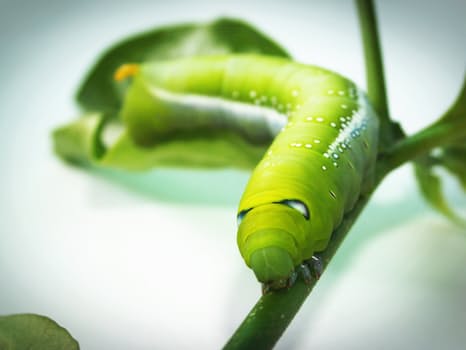6 Quick Tips for Vegetable Gardening Without the Use of Chemical Fertilizers and Pesticides
It’s true that some gardeners can’t resist the jumbo-sized, blemish-free produce that results from using Miracle Gro. But a whole lot of other people nowadays are into growing food for their families using the healthiest means possible. This means NO chemicals – at all! And the great news is, organic gardening isn’t as difficult as some might think. In fact it’s pretty darned easy if you do it correctly from the start.
Below, six keys to organic gardening success.
Fertile Soil
To successfully grow a lush, green garden that bears beautiful vegetables, herbs and flowers, you should start with excellent quality soil. You can create your own, fertile soil by composting a mix of green and brown matter and then repeatedly adding that to the existing soil in your garden patch. However, since this takes a pretty long time… take a short cut, and bring in some organic soil from your local grower. You will only have to invest in soil the first year, and thereafter can augment the soil with biodegradable organic matter that you make in your handy composter.
Raised Beds
The next key to a super prolific organic garden: raised beds. If you check out the encyclopedia of garden plants that we included in our Complete Organic Gardening Guide for NJ Zone 6, you’ll see that a great majority of them do better if planted in “well draining soil.” What does that mean? The garden should be up on a slight plateau… sloped sides, flat on top. This promotes good drainage: water collects up top, is absorbed by the loose, fluffy soil, and sinks to the roots of the plants. Any excess water will flow down and away from the plants.
Companion Planting
Many NJ gardeners start off on the right foot by planting in organic soil. Then, when the heat of summer brings produce-damaging insects and disease, they give up and resort to using chemical pesticides. Or, they don’t spray, but lose some of their precious harvest to beetles and such. This doesn’t have to be the case. Companion planting will rid your garden of many a bug, and even some diseases such as fungus and nematodes which are basically parasites.
Companion planting is pretty easy. Just plant aromatics, such as marigolds, nasturtium, basil, garlic, onions, rosemary, thyme, oregano, lavender, and other strongly scented flowers and herbs, in and around the veggie plants in your garden. Aromatics give off a strong odor which is naturally repellent. For more information about which aromatics and other garden plants make the best neighbors, read our article on companion planting.
Crop Rotation
Crop rotation has been utilized since the Middle Ages. If a plant takes up the same spot in your garden year after year, it will basically deplete the soil in that area of all the nutrients that it needs to grow and thrive. Thus, each year the plant will become less healthy and your crop will suffer. Additionally, if any plant-specific viruses, fungus or other diseases take hold in that spot, the pathogens will remain in the soil and spread to the following year’s crop.
Knowing this, it’s important to rotate your crops to different spots in your garden. If you can’t technically move the location of the crop in question due to spatial constraints or lack of sunlight, then you should bring in new soil from the outside. This will replenish the depleted nutrients. You can also bake the weeds and pathogens out of your garden beds by laying down dark plastic over the beds on a hot, sunny day.
Organic Fertilizers
The best fertilizers come from nature and should have decomposed completely so as not to contain any seeds or pathogens. Organic compost that you cook in your own backyard using a combination of green matter (grass clippings, coffee grinds, clean paper waste, kitchen waste) and brown matter (decayed leaves), will provide the perfect mix of nutrients to benefit your garden veggies.
Fish emulsion, too, is highly beneficial to your garden plants, deepening the color of the foliage and increasing the vitamin and mineral content. You can make your own of these types of natural fertilizer, or you can buy high quality organic fertilizers such as Espoma’s Garden-tone. Chicken and cow manure, too, can improve the quality of some of your garden veggies, but beware. The manure should be fully cured (broken down completely) to ensure that it does not contain harmful pathogens that can make humans ill.
Air Flow.
Another important aspect of gardening: air flow. Certain plants in particular, but all plants in general, benefit from having adequate space around them. This is not just so that sunlight can reach them, but also for proper air circulation. Think of nature at work: first the rain falls. Then the wind blows to help dry everything out. Without that drying wind, your garden plants will retain moisture which promotes rot, mold, mildew, fungus and disease. By following the instructions on your seed packets or planting sticks, you can provide your plants the room they need to thrive.
Order our NJ Zone 6 Organic Gardening E-Guide and Encyclopedia of Veggies, Herbs and Companion Flowers
Gardening is easy… and it’s also complicated. To become a pro, why not check out our Complete Beginner’s E-Guide to Organic Gardening in NJ Zone 6. Now available in ebook format only, available for instant download via PayPal payment.



